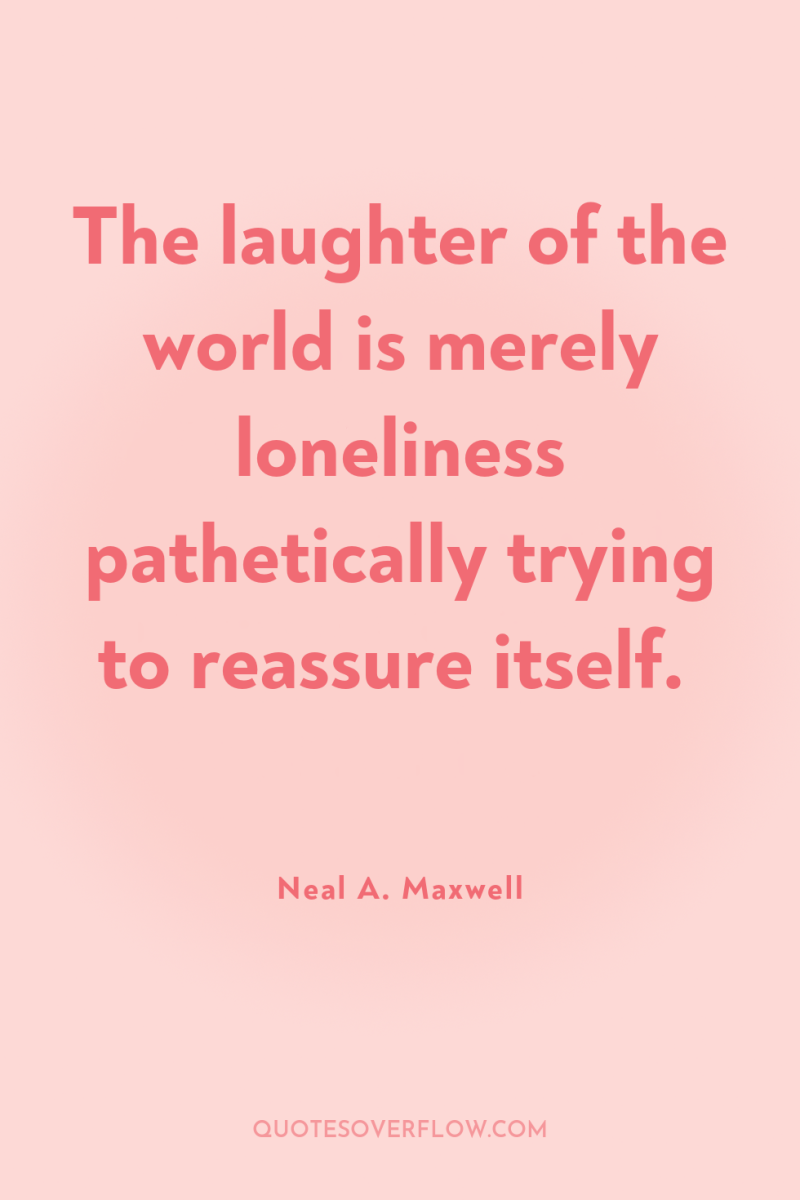
1
Each of us is an innkeeper who decides if there is room for Jesus!Neal A. Maxwell

2
The laughter of the world is merely loneliness pathetically trying to reassure itself.Neal A. Maxwell
3
I think a strong claim can be made that the process of scientific discovery may be regarded as a form of art. This is best seen in the theoretical aspects of Physical Science. The mathematical theorist builds up on certain assumptions and according to well understood logical rules, step by step, a stately edifice, while his imaginative power brings out clearly the hidden relations between its parts. A well constructed theory is in some respects undoubtedly an artistic production. A fine example is the famous Kinetic Theory of Maxwell.. The theory of relativity by Einstein, quite apart from any question of its validity, cannot but be regarded as a magnificent work of art.Ernest Rutherford
4
We all behave like Maxwell’s demon. Organisms organize. In everyday experience lies the reason sober physicists across two centuries kept this cartoon fantasy alive. We sort the mail, build sand castles, solve jigsaw puzzles, separate wheat from chaff, rearrange chess pieces, collect stamps, alphabetize books, create symmetry, compose sonnets and sonatas, and put our rooms in order, and all this we do requires no great energy, as long as we can apply intelligence. We propagate structure (not just we humans but we who are alive). We disturb the tendency toward equilibrium. It would be absurd to attempt a thermodynamic accounting for such processes, but it is not absurd to say we are reducing entropy, piece by piece. Bit by bit. The original demon, discerning one molecules at a time, distinguishing fast from slow, and operating his little gateway, is sometimes described as “superintelligent, ” but compared to a real organism it is an idiot savant. Not only do living things lessen the disorder in their environments; they are in themselves, their skeletons and their flesh, vesicles and membranes, shells and carapaces, leaves and blossoms, circulatory systems and metabolic pathways - miracles of pattern and structure. It sometimes seems as if curbing entropy is our quixotic purpose in the universe.James Gleick